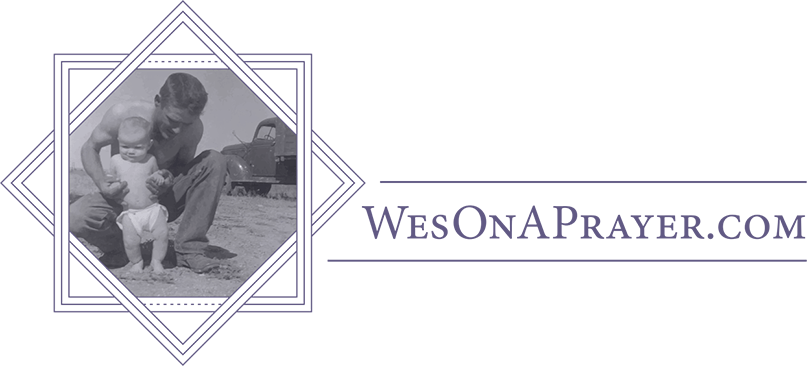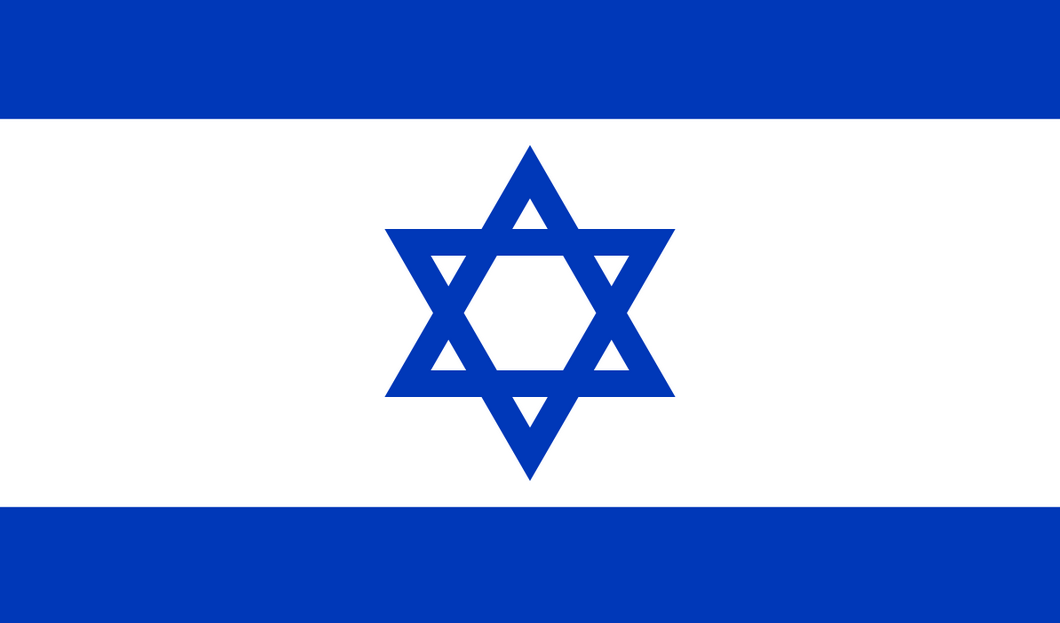Your Offspring Possess The Cities of Their Enemies
And they blessed Rebekah and said to her, “Our sister, may you increase to thousands upon thousands; may your offspring possess the cities of their enemies.” Genesis 24:60. Please remember this verse. I will eventually get back to these words recorded by Moses in the first book of the Bible.
Moses wrote the book of Genesis during the Exodus from Egypt. He had a lot of things going on. After all, Moses was leading 600,000 men on foot, besides women and children, while traveling through the desert, according to Exodus 12:7. Don’t forget there were large droves of livestock, flocks, and herds. It seems incredible that he would write one book, let alone five. Of course, someone may have had to finish one of the books since Deuteronomy describes Moses’ death. Joshua may have been his scribe, but I digress. Although Moses was busy, he felt compelled to write down the lineage of Adam to Abram.
From Adam to Abram
Here are the names: Adam – Seth – Enosh – Kenan – Mahalalel – Jared – Enoch – Methuselah – Lamech – Noah – Shem – Arphaxad – Shelah – Eber – Peleg – Reu – Serug – Nahor – Terah – Abram. Noah outlived Peleg and Nahor, and Abram was born only two years after Noah died.
Cursed Be Canaan
Most of us familiar with Genesis know about the disobedience in the Garden of Eden. Likewise, we know there was depravity that preceded the Great Flood. Yet, what happened in Noah’s tent seems specific and also vague. Genesis 9:24-27 reads:
When Noah awoke from his wine and found out what his youngest son had done to him, he said, “Cursed be Canaan! The lowest of slaves
will he be to his brothers.” He also said, “Praise be to the Lord, the God of Shem! May Canaan be the slave of Shem.” And then Noah said, “May God extend Japheth’s territory; may Japheth live in the tents of Shem, and may Canaan be the slave of Japheth.”
Now, fast forward past the story of the tower of Babel and read where Abram’s father attempted to go.
Genesis 11:31,32 reads: Terah took his son Abram, his grandson Lot son of Haran, and his daughter-in-law Sarai, the wife of his son Abram, and together they set out from Ur of the Chaldeans to go to Canaan. But when they came to Harran, they settled there. Terah lived 205 years, and he died in Harran.
Then, what happened?
Genesis 12: 1-3 reads: The Lord had said to Abram, “Go from your country, your people and your father’s household to the land I will show you. I will make you into a great nation, and I will bless you.”‘ God also said, “I will bless those who bless you, and whoever curses you I will curse; and all peoples on earth will be blessed through you.”
Genesis 12:4,5 reads: So Abram went, as the Lord had told him; and Lot went with him. Abram was seventy-five years old when he set out from Harran. He took his wife Sarai, his nephew Lot, all the possessions they had accumulated and the people they had acquired in Harran, and they set out for the land of Canaan, and they arrived there.
In Genesis 15: 18-21, we learn the Lord made a covenant with Abram and said, “To your descendants I give this land, from the Wadi of Egypt to the great river, the Euphrates— the land of the Kenites, Kenizzites, Kadmonites, Hittites, Perizzites, Rephaites, Amorites, Canaanites, Girgashites and Jebusites.”
God Changed The Names of Abram and Sarai
Genesis 17:1, 2 reads: When Abram was ninety-nine years old, the Lord appeared to him and said, “I am God Almighty; walk before me faithfully and be blameless. Then I will make my covenant between me and you and will greatly increase your numbers.”
Now, consider Genesis 17: 5-8. God said,” No longer will you be called Abram; your name will be Abraham, for I have made you a father of many nations.” He also said, “I will make you very fruitful; I will make nations of you, and kings will come from you.” Then, God said, “I will establish my covenant as an everlasting covenant between me and you and your descendants after you for the generations to come, to be your God and the God of your descendants after you. The whole land of Canaan, where you now reside as a foreigner, I will give as an everlasting possession to you and your descendants after you; and I will be their God.”
And then Genesis 17: 15-21
God also said to Abraham, “As for Sarai your wife, you are no longer to call her Sarai; her name will be Sarah. I will bless her and will surely give you a son by her. I will bless her so that she will be the mother of nations; kings of peoples will come from her.”
Abraham fell facedown; he laughed and said to himself, “Will a son be born to a man a hundred years old? Will Sarah bear a child at the age of ninety?” And Abraham said to God, “If only Ishmael might live under your blessing!”
Then God said, “Yes, but your wife Sarah will bear you a son, and you will call him Isaac. I will establish my covenant with him as an everlasting covenant for his descendants after him. And as for Ishmael, I have heard you.” Then God said, “I will surely bless him; I will make him fruitful and will greatly increase his numbers. He will be the father of twelve rulers, and I will make him into a great nation. But my covenant I will establish with Isaac, whom Sarah will bear to you by this time next year.”
As God said, Sarah gave birth to a boy and named him Isaac. Now, let’s fast forward some more. Isaac grew up. Abraham was tested, and Sarah died. Abraham bought a field from a Canaan Hittite to bury Sarah.
Rebekah’s Blessing
Finally, I am back to Rebekah. Genesis 24 tells a beautiful story of how Abraham sent his head servant back toward Northern Mesopotamia to find a wife for his son Isaac. How and why did Rebekah’s family bless her the way they did?
May Your Offspring Possess The Cities Of Their Enemies
Why did they say, “Our sister, may you increase to thousands upon thousands; may your offspring possess the cities of their enemies?” Can you imagine reacting in such a way to a wedding announcement? I imagine wishing for a bride to have many children and grandchildren someday. But why would anyone say, “May your offspring possess the cities of their enemies?”
Abraham Must of Told Someone
I suspect the scandal in Noah’s tent was not a secret. Why the prophetic curse was not directed toward Ham instead of his son Canaan escapes me. Nonetheless, Abraham was sent to the land of Canaan. Abraham must have told someone what God had promised him. Somehow, Rebekah’s family knew her offspring would have enemies in the land of Canaan. Why else would they have said, “May your offspring possess the cities of their enemies?”
Just as God told him, Abraham’s descendants inherited the land through his son Isaac and Isaac’s son Jacob. By the way, God renamed Jacob. He was a “deceiver,” but God changed his name to one that means “one that struggles with God.” God changed Jacob’s name to Israel. Yes, this is the name of a nation that had Jesus crucified. Honestly, they are a nation that struggles with God. They are a nation chosen by God not on their merits but as an example of how God deals with those struggling with God.
Honestly, everyone struggles with God, some more than others. However, the nation of Israel, not Palestine, was established by God “from the river to the sea.” There is not a two-state solution concerning geography in that area, no matter what government leaders say. God, not the United Nations, gave the land to Israel. Xi, Obama, and Biden are wrong. This article with a link here shows the pervasiveness of the lack of understanding of Israel’s right to defend itself.
Concerning Eternal Life, Not Life In A Geographic Location
Concerning eternal life, Jesus, the son of God was born a Jew, was crucified and rose again so all people including Jews and Non-Jews might be free from sin. Matthew 7: 13-29 reads:
The Narrow and Wide Gates“Enter through the narrow gate. For wide is the gate and broad is the road that leads to destruction, and many enter through it. But small is the gate and narrow the road that leads to life, and only a few find it.
True and False Prophets
“Watch out for false prophets. They come to you in sheep’s clothing, but inwardly they are ferocious wolves. By their fruit you will recognize them. Do people pick grapes from thorn bushes, or figs from thistles? Likewise, every good tree bears good fruit, but a bad tree bears bad fruit. A good tree cannot bear bad fruit, and a bad tree cannot bear good fruit. Every tree that does not bear good fruit is cut down and thrown into the fire. Thus, by their fruit you will recognize them.
True and False Disciples
“Not everyone who says to me, ‘Lord, Lord,’ will enter the kingdom of heaven, but only the one who does the will of my Father who is in heaven. Many will say to me on that day, ‘Lord, Lord, did we not prophesy in your name and in your name drive out demons and in your name perform many miracles?’ Then I will tell them plainly, ‘I never knew you. Away from me, you evildoers!’
The Wise and Foolish Builders
“Therefore everyone who hears these words of mine and puts them into practice is like a wise man who built his house on the rock. The rain came down, the streams rose, and the winds blew and beat against that house; yet it did not fall, because it had its foundation on the rock. But everyone who hears these words of mine and does not put them into practice is like a foolish man who built his house on sand. The rain came down, the streams rose, and the winds blew and beat against that house, and it fell with a great crash.”
When Jesus had finished saying these things, the crowds were amazed at his teaching, because he taught as one who had authority, and not as their teachers of the law.



